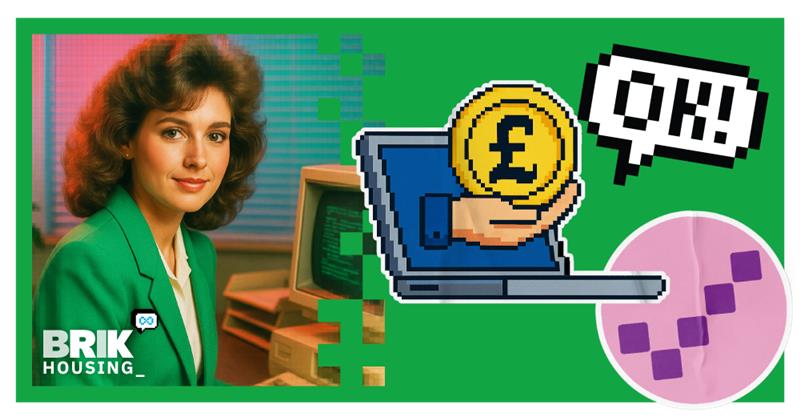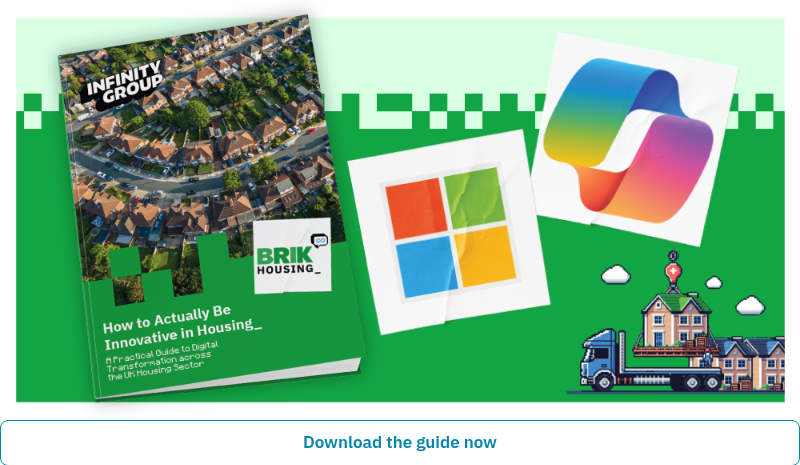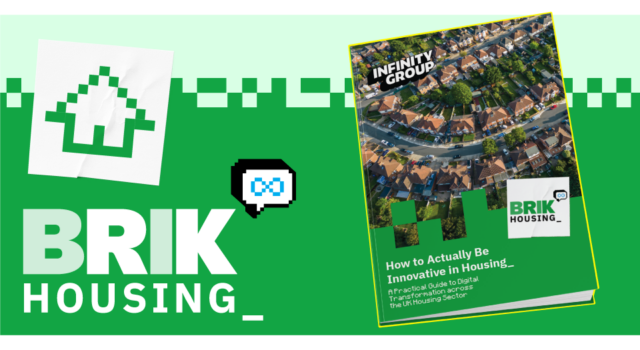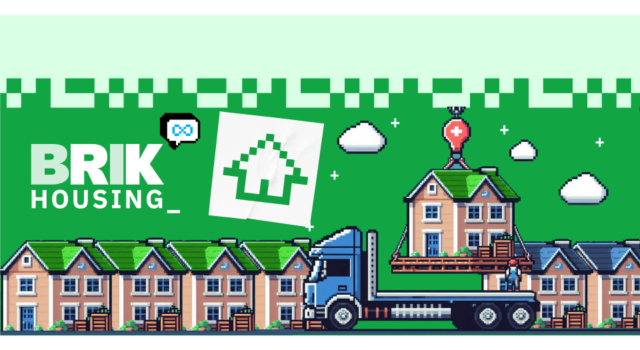_Rent accounting might not be the most glamorous part of housing management – but it’s one of the most critical.
And, unfortunately, it’s increasingly becoming a strategic pressure point. With rising arrears, tighter margins and growing regulatory demands, the way rent is managed, tracked and recovered has a direct impact on financial resilience and tenant outcomes.
From rent caps and inflation to mounting compliance pressures, housing providers are being asked to do more with less. Finance teams are stretched and tenant expectations are rising, often with legacy systems that can’t keep up. The result is missed opportunities to recover income, rising operational costs and a growing disconnect between housing associations and the people they serve.
In order to end the pressure, rent accounting must evolve from reactive firefighting to proactive income management. Ideally, without adding any extra complexity or risk to your already complicated processes.
In this post, we’ll explore the real-world consequences of inefficient rent accounting processes and how housing providers can take practical steps to streamline operations, reduce costs and improve tenant engagement.
What are the challenges in rent accounting today?
Rent accounting is a core operational process that directly affects housing associations’ ability to serve tenants, maintain compliance and stay financially resilient. So, when processes are inefficient, the consequences are felt across the organisation and in tenants’ day-to-day lives.
Here are the key challenges facing housing providers today:
1. Rent caps and inflation
The financial model underpinning social housing is under significant strain. Rent caps, introduced to protect tenants from steep increases, have limited the ability of housing associations to grow their income in line with inflation. At the same time, the cost of delivering services, maintaining stock and meeting regulatory obligations has risen sharply.
This creates a structural imbalance that rent accounting processes must navigate. Finance teams are expected to forecast income accurately, manage tighter margins and ensure compliance with loan covenants, all while working with constrained revenue streams. Without precise rent accounting and robust financial modelling, housing associations risk underestimating shortfalls, delaying investment decisions or breaching financial agreements.
2. Arrears and affordability pressures
The cost-of-living crisis has led to a marked increase in rent arrears. Many tenants are struggling to meet their obligations, particularly those on low or unstable incomes. For housing associations, this translates into a growing volume of arrears cases that require careful management.
However, arrears processes are often reactive and heavily manual. Income officers may rely on spreadsheets, inconsistent workflows or outdated systems to track balances, issue communications and negotiate payment plans. This increases administrative burden and reduces the organisation’s ability to intervene early and support tenants effectively.
Inconsistent or delayed communication can escalate arrears unnecessarily, leading to enforcement action that could have been avoided with a more proactive, structured approach.
3. Data and reporting gaps
Accurate rent accounting depends on high-quality data; yet many housing associations operate with fragmented systems, siloed and limited reporting capabilities. This makes it difficult to produce reliable financial statements or make informed operational decisions.
Data gaps can lead to misstatements in rent accounts, incorrect service charge allocations and delays in identifying arrears trends. These issues undermine financial control and can erode tenant trust. When tenants receive inaccurate statements or are charged incorrectly, it creates confusion, complaints and reputational risk. Moreover, poor data quality can compromise compliance, based on regulatory expectations around transparency and accountability.
4. Legacy systems and manual processes
Many housing associations still rely on legacy systems that were not designed to handle the complexity and scale of modern rent accounting. These systems often lack integration with other core platforms, require significant manual input and are difficult to adapt to changing regulatory requirements.
This results in inefficiencies across the board. Staff spend excessive time reconciling accounts, correcting errors and duplicating data entry. When processes are not standardised or automated, the risk of inconsistency increases, particularly when staff turnover is high. These inefficiencies drive up costs and delay responses to tenant queries, reducing your agility when responding to external change.
5. Inflexible payment cycles and methods
Traditional rent collection models often assume fixed payment schedules (typically weekly or monthly) and limited payment methods. However, this rigidity does not reflect the financial realities of many tenants, particularly those receiving Universal Credit or working in insecure employment.
When rent payment cycles do not align with income patterns, tenants are more likely to fall into arrears. Housing associations then face the administrative burden of managing exceptions, issuing reminders and reconciling partial payments. Without flexible, tenant-centred payment processes, arrears can escalate unnecessarily, increasing pressure on both tenants and income teams.
6. Lack of real-time visibility
Timely decision-making depends on real-time access to accurate rent account data. Yet many housing associations operate with delayed or batch-processed information, limiting their ability to respond quickly to emerging issues.
Without real-time visibility, income teams cannot easily identify tenants at risk of falling into arrears, track the impact of interventions or forecast income with confidence. Tenants, in turn, may not have access to up-to-date account balances or payment histories, leading to confusion and disputes. This lack of transparency hinders both operational efficiency and tenant engagement.
7. Regulatory scrutiny and consumer standards
The regulatory environment for social housing is becoming more demanding. There is increased emphasis on transparency, tenant satisfaction and financial viability. Rent accounting processes must now support internal financial control and external accountability.
This means being able to demonstrate that rent is calculated and applied fairly, that service charges are transparent, and that tenants are kept informed about their accounts. Housing associations that rely on outdated or inconsistent processes may struggle to meet these expectations, exposing themselves to regulatory intervention and reputational harm.
How housing associations can overcome rent accounting challenges
Transformation in rent accounting begins with process change. Housing associations don’t need to overhaul their entire infrastructure to make meaningful improvements; they need to rethink how rent is managed, communicated and monitored across the organisation.
Focus on standardisation and consistency
One of the most effective ways to reduce errors and inefficiencies is to standardise rent accounting workflows. This means establishing clear procedures for payment processing, arrears management, service charge allocation and tenant communications. When processes are consistent across teams and tenures, housing associations can reduce reliance on individual staff knowledge, improve auditability and ensure tenants receive accurate, timely information.
Improve data governance and visibility
Rent accounting is only as strong as the data that underpins it. Housing associations must invest in improving data quality; ensuring that rent accounts are complete, up to date and accessible across departments. This includes reconciling legacy records, eliminating duplication and creating clear ownership of data. With better visibility, finance and housing teams can make faster, more informed decisions and respond proactively to emerging risks.
Embed flexibility into payment processes
Rigid rent collection models often fail to reflect the financial realities of tenants. By introducing more flexible payment arrangements – such as aligning rent schedules with benefit cycles or allowing multiple payment methods – housing associations can reduce arrears and improve tenant engagement. Flexibility should be built into the process, not treated as an exception.
Strengthen collaboration between teams
Rent accounting doesn’t sit in isolation. It intersects with housing management, customer service, finance and compliance. Overcoming challenges requires better collaboration across these functions. This means breaking down silos, sharing data and aligning goals, so that rent accounting becomes a shared responsibility rather than a back-office task.
Prioritise tenant communication and transparency
Many rent-related issues stem from poor communication. Tenants need clear, consistent information about their rent charges, payment status and any arrears. Housing associations should review how rent information is presented, whether through statements, portals or direct contact, and ensure it’s easy to understand and up to date. Transparent communication builds trust and reduces disputes.
Monitor and adapt to regulatory change
The regulatory landscape is evolving, with greater emphasis on tenant satisfaction, financial viability and transparency. Housing associations must ensure their rent accounting processes are agile enough to adapt to new standards and reporting requirements. This means regularly reviewing procedures, training staff and embedding compliance into day-to-day operations.
How BRIKHousing is easing the pressure
Housing associations are under pressure to modernise rent accounting. It allows you to keep up with regulation, reduce costs, improve service delivery and support tenants more effectively. The BRIKHousing Rent Accounting module is designed to meet these needs by streamlining core processes, improving data visibility and enabling more responsive income management.
- Simplifying complex rent accounting tasks. Rent accounting involves tracking and managing all credits and debits across tenant and leaseholder accounts, including sub-accounts. BRIKHousing simplifies this complexity by automating payment uploads for direct debits, housing benefit, Universal Credit and third-party providers. This ensures every transaction is recorded accurately and consistently, reducing errors and manual reconciliation.
- Automating arrears and payment plan management. The module enables housing associations to set up and manage payment plans with automated calculations that determine how long it will take to clear debt. It also provides predictive data management to assess whether a tenancy is on-plan or off-plan, allowing income teams to intervene earlier and more effectively.
- Centralising data for better decision-making. One of the biggest barriers to effective rent accounting is fragmented data. BRIKHousing centralises rent-related data, giving housing associations real-time insights into key performance indicators. This supports faster, more informed decision-making across finance, housing management and compliance teams. This also enables more agile responses to challenges like rent caps and the cost-of-living crisis.
- Supporting flexible payment options. The module allows for multiple direct debits per rent account, giving tenants greater flexibility in how they pay. This is particularly valuable for residents with irregular incomes or those receiving benefits, helping to prevent arrears and improve payment reliability.
- Tracking void losses and income gaps. Void loss tracking is built into the module, allowing providers to monitor the financial impact of empty properties. This supports better asset utilisation and helps finance teams understand where income gaps are occurring.
The strategic benefits of smarter rent accounting
Improving rent accounting can unlock long-term value. When housing associations invest in streamlining rent-related processes, the impact is felt across core areas:
- Improved financial resilience. Accurate and timely rent accounting enables better forecasting, more reliable income recovery and stronger financial planning. With clearer visibility of arrears, void losses, and payment trends, finance teams can make informed decisions that protect revenue and support long-term sustainability.
- Enhanced tenant experience. Clear communication about rent balances, payment plans, and service charges reduces confusion and builds trust. Tenants are more likely to engage proactively with their landlord when they understand their account status and feel supported in managing their payments.
- Regulatory confidence. Housing associations that can demonstrate robust rent accounting practices, supported by accurate data, audit trails and consistent reporting, are better positioned to meet compliance requirements.
- Operational efficiency. Streamlined rent accounting processes reduce the administrative burden on staff, freeing up time for more strategic and tenant-facing work. Standardised workflows, automated tasks and real-time data access eliminate duplication and minimise errors.
And we’ve seen the benefits in real life. Wales & West Housing, which manages over 12,000 homes across Wales, offers a compelling example of how rethinking rent accounting processes can deliver measurable benefits.
By streamlining workflows and improving data visibility, they reduced administrative burden, improved financial oversight and delivered clearer, more consistent support to tenants. Their experience shows how targeted process improvements (and BRIKHousing technology) can drive efficiency, strengthen compliance and enhance tenant relationships, without requiring a full system overhaul. You can read more about their story here.
Innovating your housing processes
Rent accounting is no longer just a back-office function; it’s a strategic lever for financial resilience, tenant satisfaction and regulatory confidence. By addressing inefficiencies, improving data visibility and embedding more responsive processes, housing associations can turn a long-standing challenge into a source of strength.
But process improvement is just one part of the puzzle. To truly innovate in housing, organisations need to think differently about how they approach change, from culture and leadership to service design and delivery.
Explore what innovation really looks like in housing.
Download our free eBook to learn how housing providers are embracing practical, people-first innovation – and how you can too.





